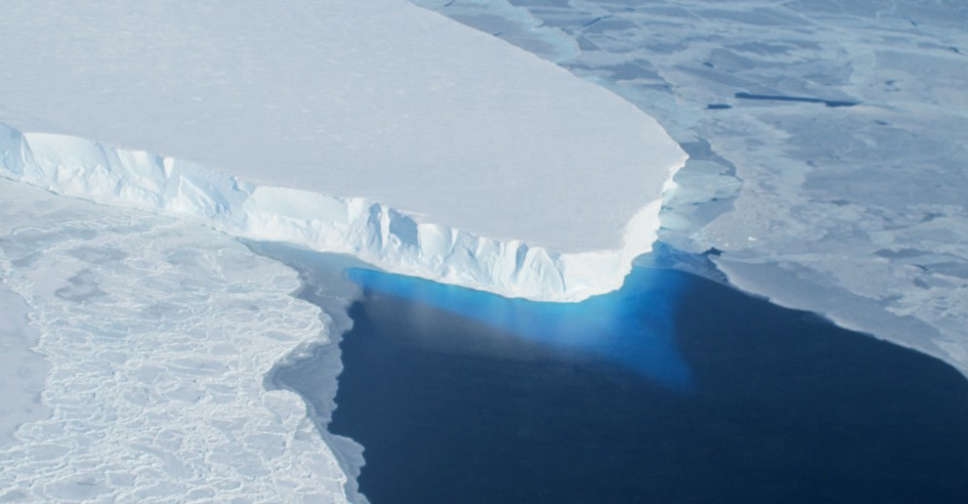
Scientists studying Antarctica's vast Thwaites Glacier - nicknamed the Doomsday Glacier - say warm water is seeping into its weak spots, worsening melting caused by rising temperatures, two papers published in Nature journal showed on Wednesday.
Thwaites, which is roughly the size of Florida, represents more than half a metre of global sea level rise potential, and could destabilise neighbouring glaciers that have the potential to cause a further three metre rise.
As part of the International Thwaites Glacier collaboration - the biggest field campaign ever attempted in Antarctica - a team of 13 U.S. and British scientists spent about six weeks on the glacier in late 2019 and early 2020.
Using an underwater robot vehicle known as Icefin, mooring data and sensors, they monitored the glacier's grounding line, where ice slides off the glacier and meets the ocean for the first time.
In one of the papers, led by Cornell University-based scientist Britney Schmidt, researchers found that warmer water was making its way into crevasses and other openings known as terraces, causing sideways melt of 30 meters or more per year.
"Warm water is getting into the weakest parts of the glacier and making it worse," Schmidt told Reuters.
"That is the kind of thing we should all be very concerned about," she said about the findings which underscored how climate change is reaching isolated Antarctica.
The other paper's findings, which Schmidt also worked on, showed about five metres per year of melt near the glacier's grounding line - less than what the most aggressive thinning models previously predicted.
But she said the melting was still of grave concern.
"If we observe less melting... that doesn't change the fact that it's retreating," Schmidt said.
Scientists have previously depended on satellite images to show the behaviour of the ice, making it difficult to get granular details. The papers represent the first time a team has been to the grounding line of a major glacier, providing a look right where "the action begins," Schmidt said.
The findings will help in the development of climate change models, said Paul Cutler, program director of Antarctic Sciences at the National Science Foundation. He reviewed the papers, but was not involved in the research.
"These things can now be taken on board in the models that will predict the future behaviour, and that was exactly the goal of this work," he said.
New results give an unexpected view of melting under #ThwaitesGlacier, one of the fastest-changing areas in Antarctica.@GlacierThwaites scientists say melting isn’t even or as fast as feared – but is still rapid in cracks and crevasses.
— British Antarctic Survey 🐧 (@BAS_News) February 15, 2023
🗞️👉 https://t.co/kAQx9WwI1c pic.twitter.com/JnznJVOeOq



 Serbia unlikely to join EU before end of decade, says President Vucic
Serbia unlikely to join EU before end of decade, says President Vucic
 Russia says five killed, 46 injured in Ukraine strike on Belgorod
Russia says five killed, 46 injured in Ukraine strike on Belgorod
 UN Security Council condemns terrorist attacks in Burkina Faso
UN Security Council condemns terrorist attacks in Burkina Faso
 Qatari Emir, German Chancellor discuss regional, international developments
Qatari Emir, German Chancellor discuss regional, international developments
 Mpox vaccines to arrive in DR Congo in next few days, WHO says
Mpox vaccines to arrive in DR Congo in next few days, WHO says






